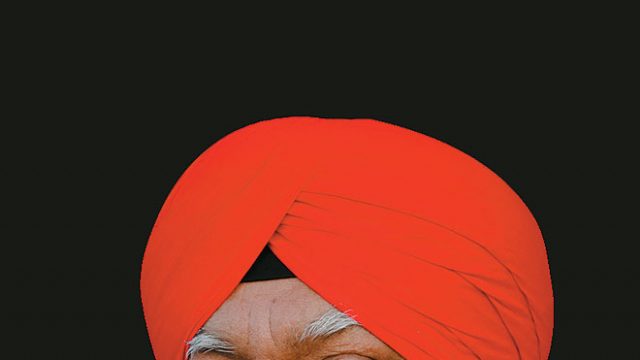OT: How did you come to acquire a passion for food?
Manjit S. Gill: When I joined the hotel management course, I worked in all the departments during my training and I found that the way I had developed my personality and aptitude, cooking was the best thing for me. So I joined the kitchen. And even today it’s a great learning experience.
OT: While growing up, was travel and food an important part of your family life?
Manjit S. Gill: In my family, the focus was not so much on travel. But because we were in Delhi, we had several visitors from our farms near Amritsar, and meals used to be a big activity. My mother is a full-time housewife. She was quite creative in her cooking—it was simple home food but there were great lessons that I learnt then, which I relate to now. It doesn’t matter whether you’re cooking commercially or in the house—the fundamentals are the same.
OT: How did you come to be one of the stalwarts of Indian cuisine?
Manjit S. Gill: I started with the Oberoi School of Hotel Management. It was a time when the focus was on Western food and culinary management. I joined ITC in 1977 and continued working in the western kitchen. But, luckily, this company focuses on everything Indian as a philosophy—our hotels, their names, their structures, the buildings—they are not typical hotels. It was then that my interest in Indian food grew. I wanted to understand Indian food beyond the recipes—I wanted to understand the philosophy behind it. The pressures of the job forced me to study more about Indian food and the influence of Ayurveda on it. Slowly, our Indian restaurants opened and now they are institutions in themselves. And after travelling the whole world, I’ve realized this is the best food.
OT: In making Indian food more accessible, are we losing out on authenticity?
Manjit S. Gill: When you alter the food so much, it only means that you don’t have the confidence in your skills and your cuisine. Indian food is not spicy hot—it has pungency and it has a taste. The really hot dishes belong to a particular area and a particular lifestyle—you can’t serve that to everyone. If I’m opening a restaurant in France or London, where people don’t eat spicy food, I’ll pick dishes that suit their palate. But you shouldn’t compromise on the flavours. It’s like serving fat-free rogan josh.
OT: What has been your favourite culinary journey over the years?
Manjit S. Gill: About a year back, I travelled to Mumbai and I had a bhel puri kind of dish made of ponk, the raw, green part of wheat that’s available for only 10-15 days in the year in parts of Gujarat and Maharashtra. It’s so sweet, it’s almost like sugar. I belong to a wheat-growing region and I’d never heard of it! In the culinary journey, you’re always an apprentice.




